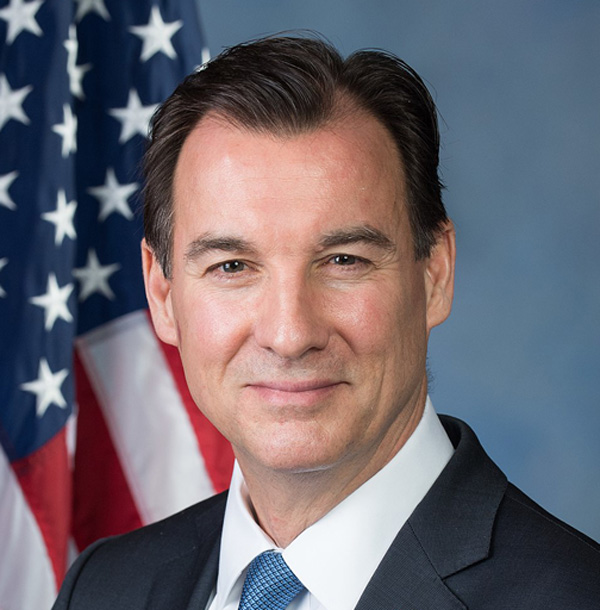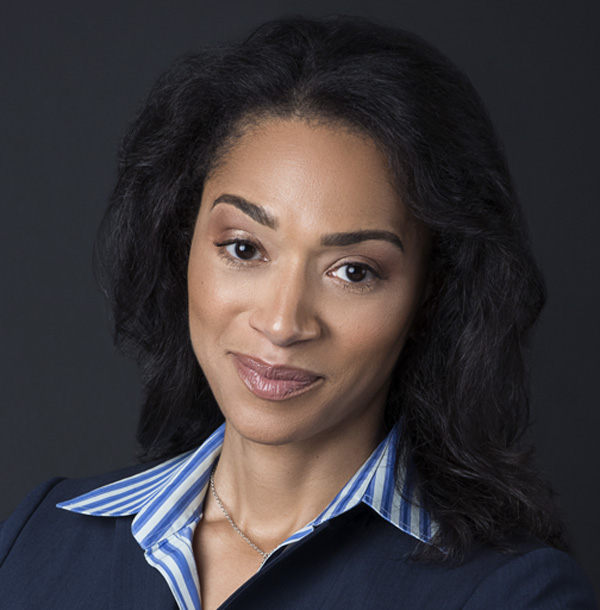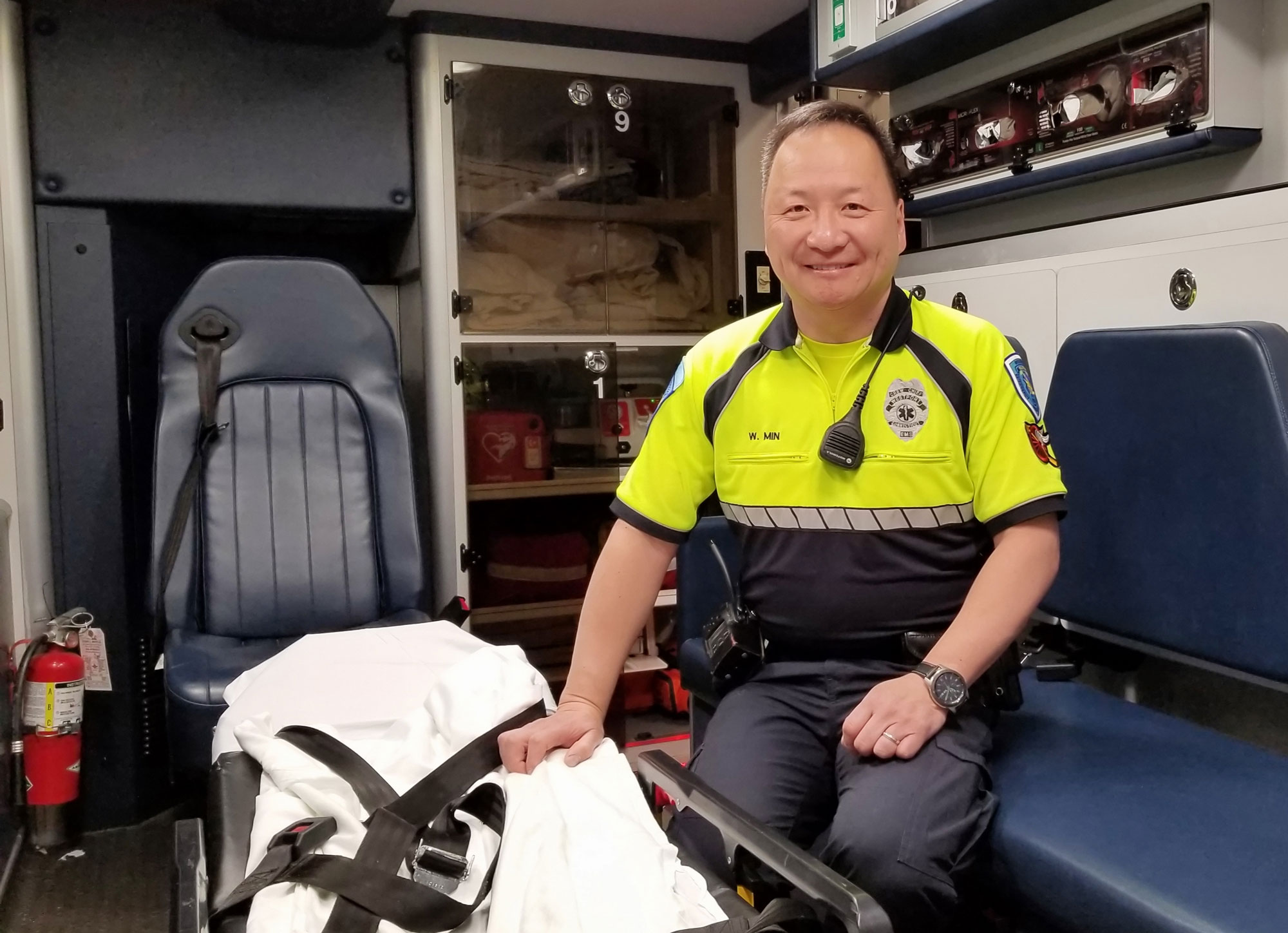

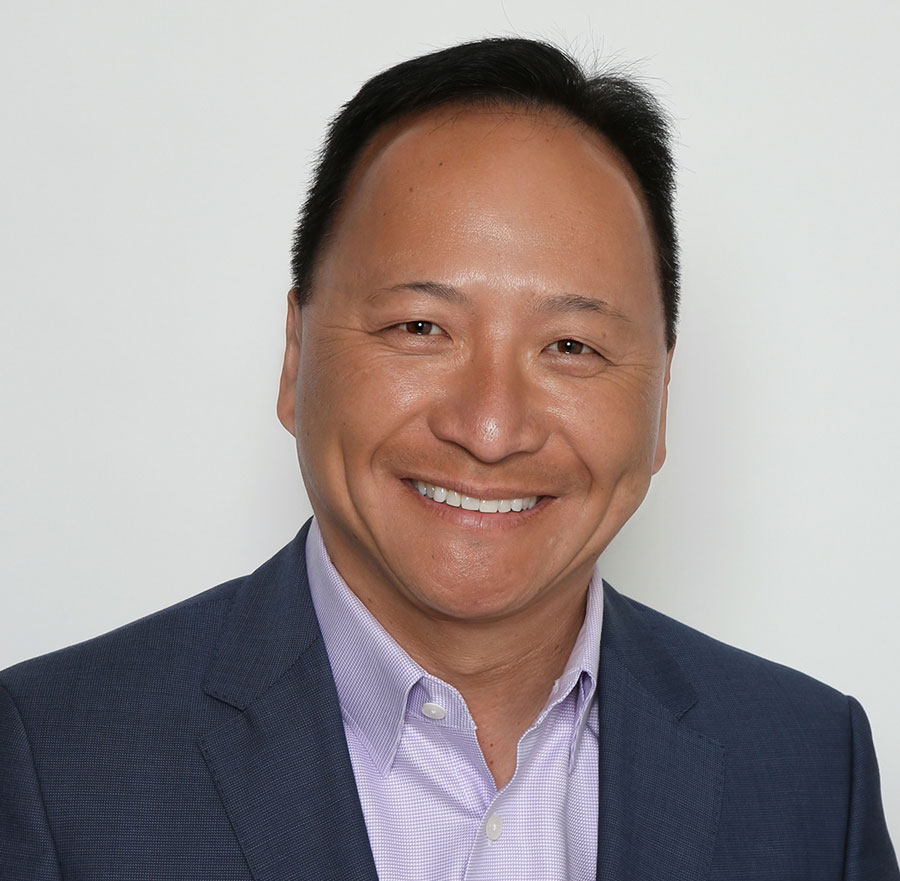
Heeding the call for volunteers to serve those desperately in need of medical attention, William Min ’90 swapped his suit and laptop for a stethoscope and ambulance as an emergency medical technician. Min, who works as executive vice president and general counsel for the risk and business analytics division of RELX, flew out from Alpharetta, Georgia—where his company’s headquarters were located—to his hometown of Westport, Connecticut, to work every other weekend on the overnight Saturday shift with the Westport Emergency Medical Service.
“The COVID-19 pandemic is very different from anything else I have seen working on the ambulance,” says Min, who has volunteered as an EMT for more than two decades. “From the amount of protective equipment, to the constantly changing protocols, the way we manage the safety of our crews and how we deliver patient care all present many new challenges.”
Among his many critical duties as crew chief, Min managed onsite patient care—directing the assessment and treatment of patients from the scene to the hospital—and also decontaminated the equipment used on the ambulance and ensuring the availability and proper use of personal protection equipment for his crew members. “One of the big reasons why I continue to do this is so I have that opportunity to interact with folks in a capacity that is definitely different than my typical day-to-day work life,” he told Corporate Counsel in May. “But it’s also rewarding to be able to continue to give back to the community and work in a way that gives me a sense of satisfaction that I can help out in a volunteer capacity.” —Erin DeGregorio
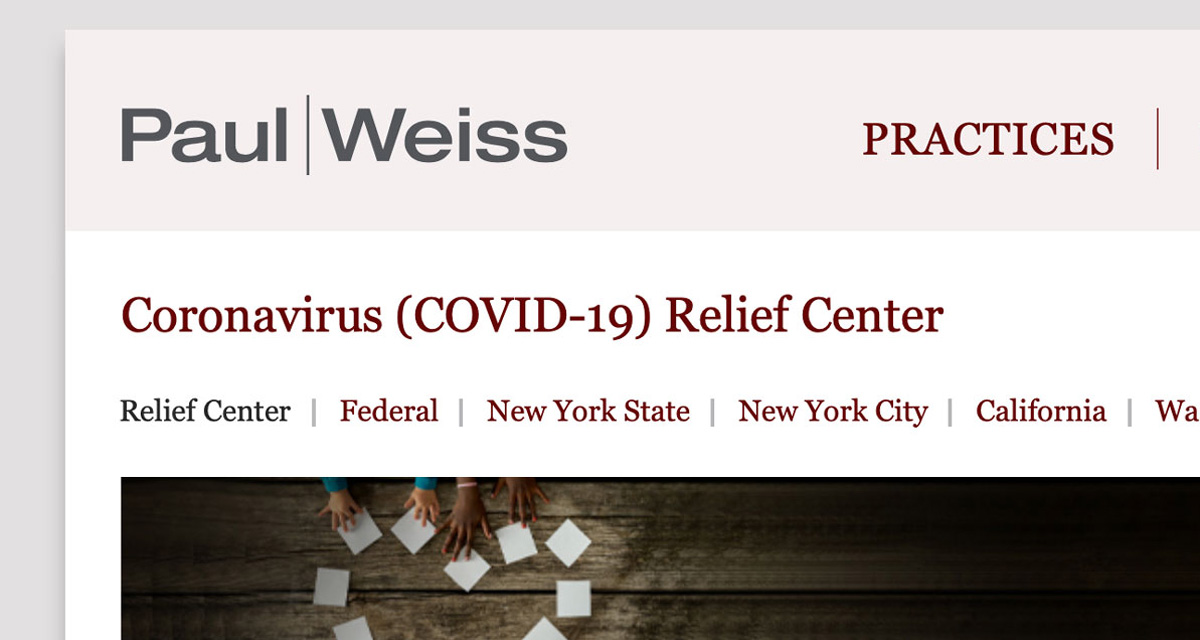
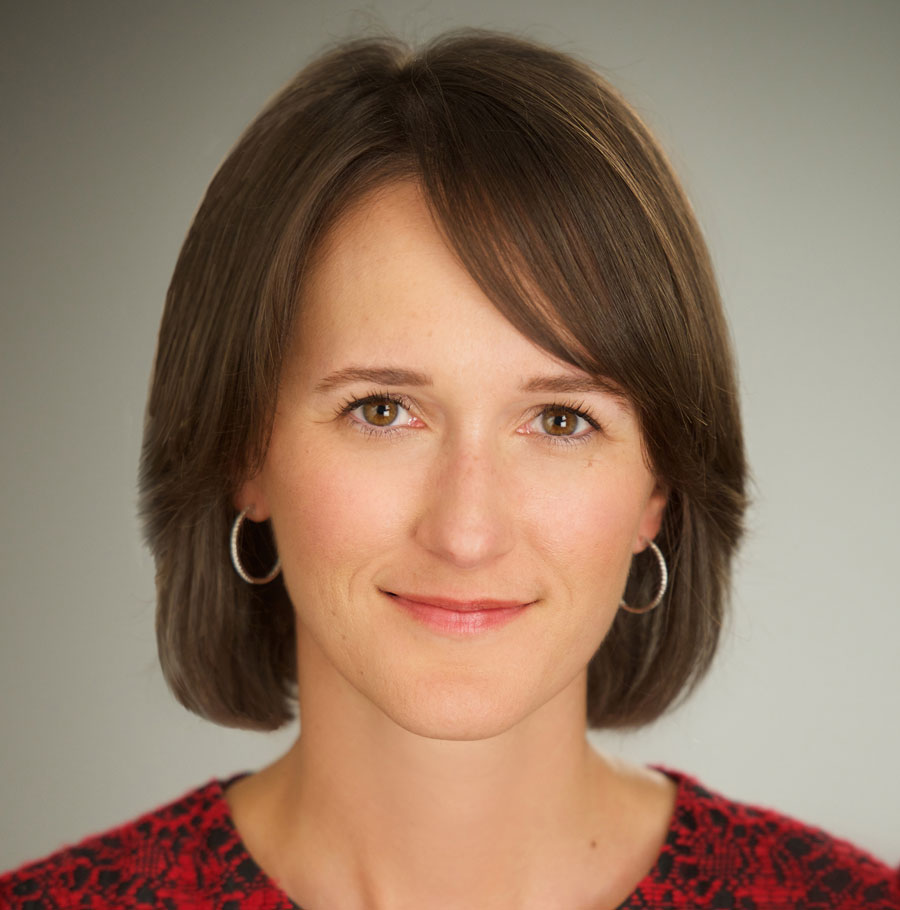

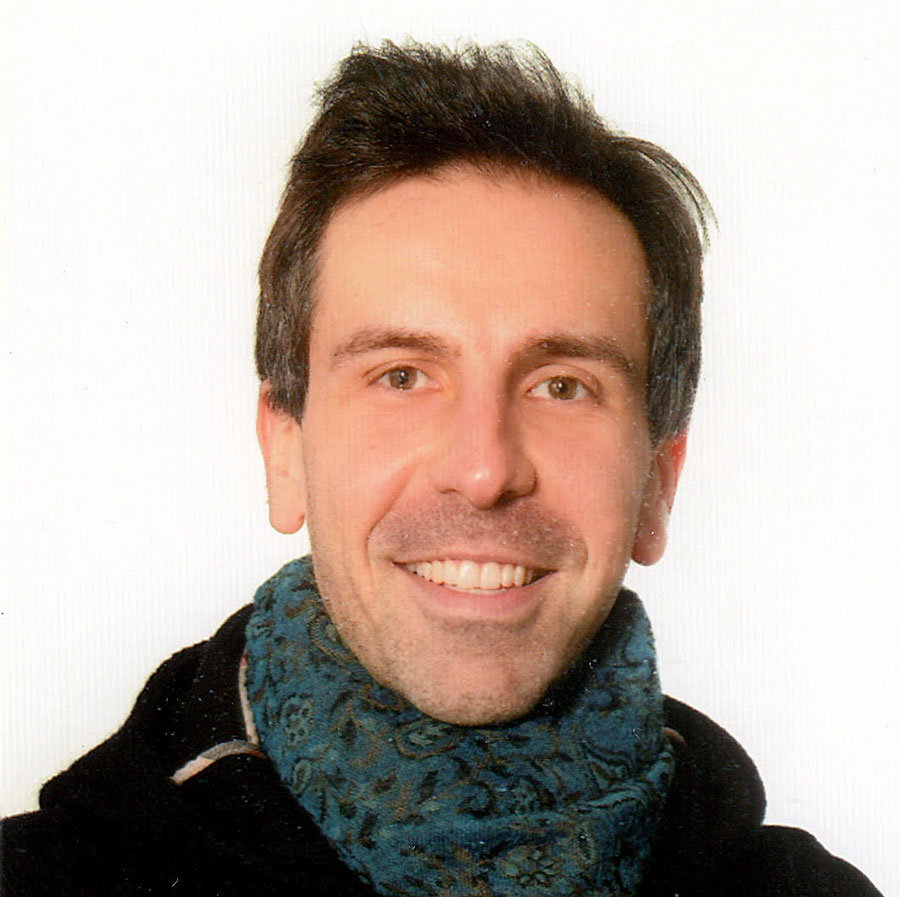
In the wake of the coronavirusoutbreak, many cancer patients—who depended on subways, buses, or trains to get to their treatment appointments—suddenly found themselves without safe and reliable transportation. “It’s not advisable for anyone to use public transportation, especially these people who are more at risk,” said Davide Szép ’17, regulatory compliance officer and data protection officer for GroundLink, a tech-enabled luxury car company.
To meet this need, GroundLink partnered with Community Oncology Alliance (COA) and CancerCare to provide free transportation for patients receiving cancer care at a community oncology practice. Szép, the sole compliance officer for a company of over 300 employees, was instrumental in overseeing and facilitating the partnership. Community oncology practices nationwide were invited to sign up for the program and provide their clients with complimentary transportation to and from their treatments. In addition to offering transportation to patients and care centers, the partnership has also offered direct financial assistance to qualified participants. In the month of May alone, the partnership provided rides for more than 1,000 COA/CancerCare patients around the country.—J.B.
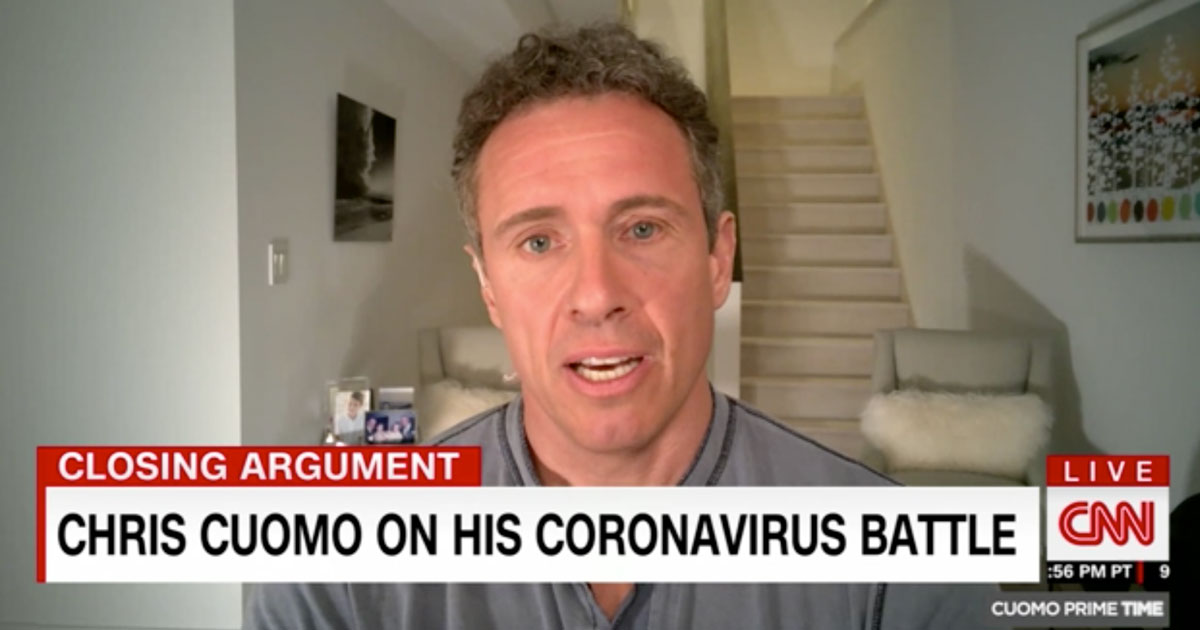
Journalist Chris Cuomo ’95 is known for his in-depth interviews with politicians and newsmakers as the anchor of CNN’s “Cuomo Prime Time.” But when he announced that he had tested positive for COVID-19 in March, he also became one of the world’s most recognizable faces of the outbreak. His older brother, New York Governor Andrew Cuomo (a 1979 graduate of Fordham College at Rose Hill), confirmed the diagnosis during his daily press briefing that same day, bringing home to New Yorkers the reality that the virus could be contracted by anyone.
Despite bouts of fever and fatigue, Cuomo dedicated himself to reporting nightly on the pandemic, hosting his show from his basement during three weeks of quarantine and another three weeks of recovery. His firsthand accounts of living with the virus and one-on-one interviews with leaders—including Governor Cuomo, former Vice President Joe Biden, and Ohio Governor Mike DeWine, among others—were appointment viewing for people hungry for the latest news about the outbreak and also his unique insights into the experience of being infected with the virus. —E.D.
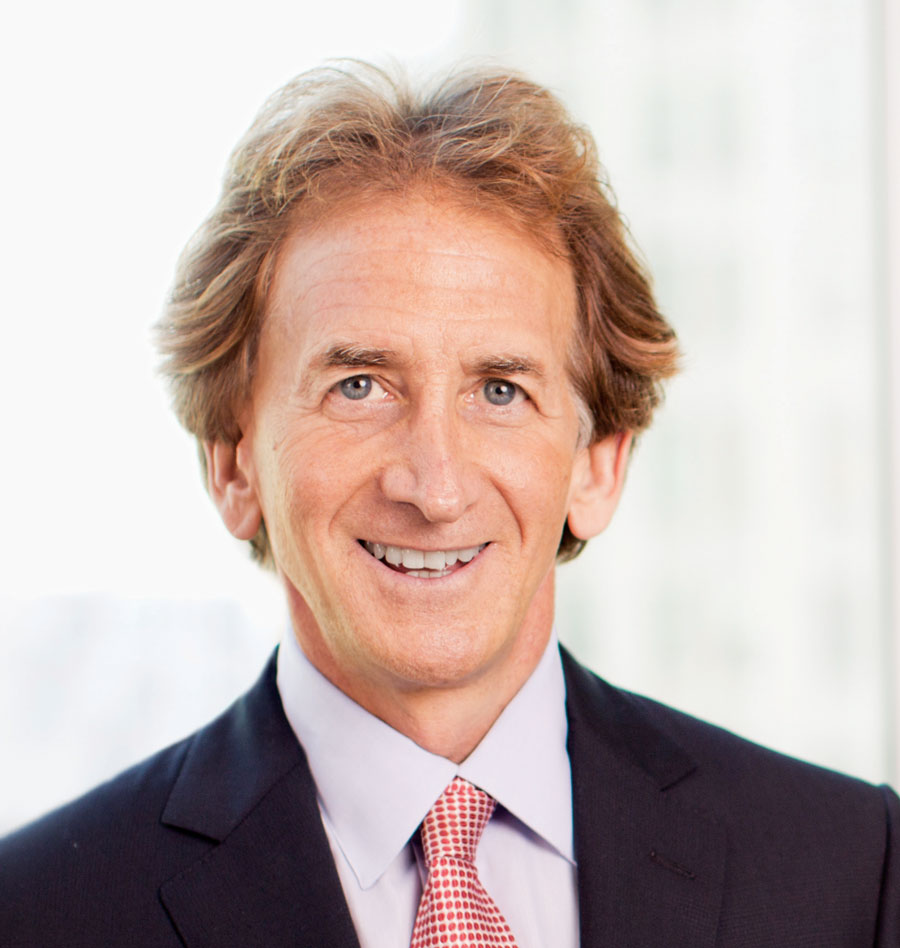
Bradley J. Butwin ’85, Chair of O’Melveny & Myers, recalls his summer associate experience of “putting on a suit every day, feeling important, being wined and dined.” But for the 102 summer associates at O’Melveny who worked remotely due to the coronavirus, Butwin says, “We planned something out of the box.”
“No ball games, dinner, and theater” this year, Butwin says. Instead, summers worked on projects “addressing the needs of vulnerable segments of our population.”
Each summer associate was given a choice of what Butwin calls a “major” and a “minor.” For the major, that could mean working on high-profile matters like a habeas corpus case representing medically vulnerable incarcerated children or running clinics for businesses facing COVID-19-related issues such as the safe return to an office. A minor gives the associates more traditional experience with other firm matters.
Despite the economic downturn, Butwin says the firm offered each summer associate a permanent position. “We’re really fired up about this,” Butwin said in June, hoping that the work projects and job offer will combine to make 2020 a “low-anxiety, high-reward summer.” —Suzi Morales
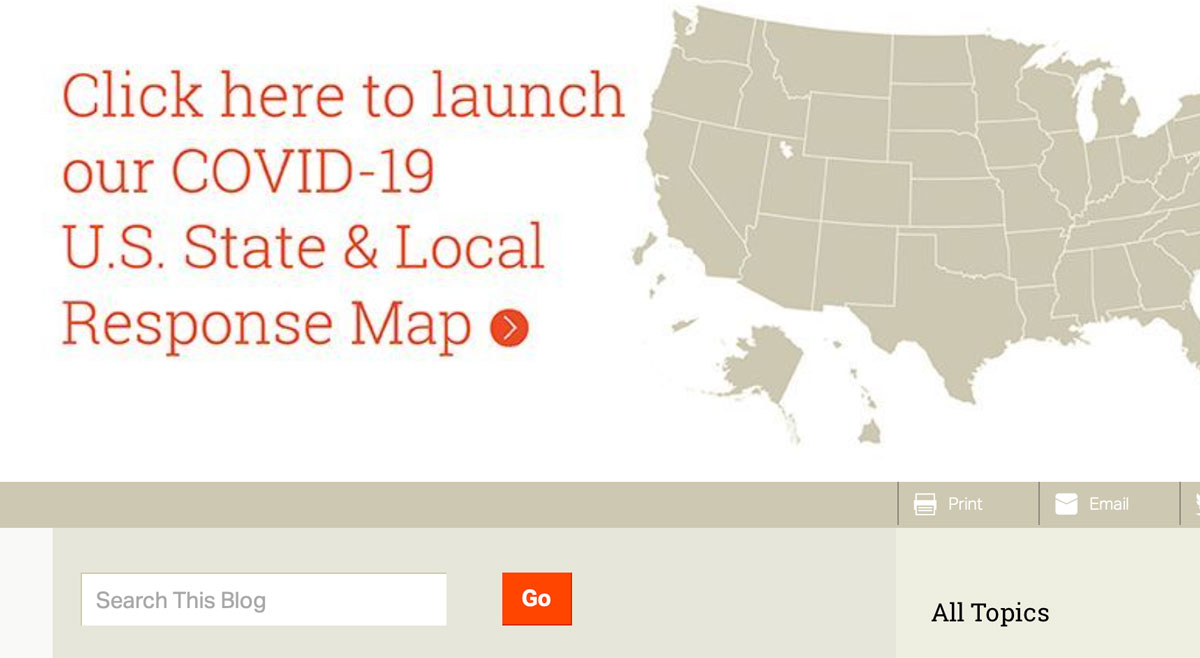
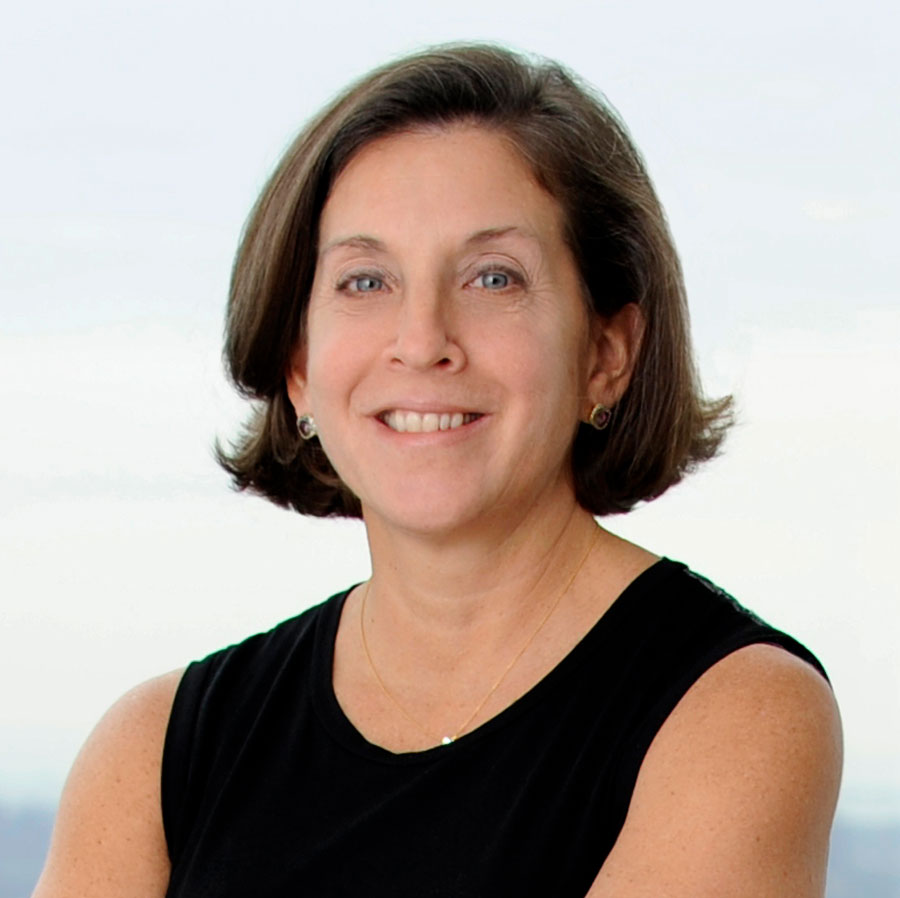
“The novel coronavirus has created disruptions to our world at a level we have never before seen,” remarks Kim Koopersmith ’84, partner and chairperson at Akin Gump. “This has meant that our clients are facing challenges for which there are few, if any, guides.”
Under Koopersmith’s leadership, Akin Gump has entered the fray on several fronts. The firm built an online COVID-19 resource center that offers up-to-date legal advice and information regarding legislation, as well as a United States map that provides guidance on the virus and opening status of each of the 50 states down to the local level. Moreover, the firm’s policy team has worked to secure governmental financial assistance for a network of independent arts venues and has aided a Texas not-for-profit hospital system in obtaining a grant for COVID-19 telehealth. Price-gouging and refund cases—which became rampant when the pandemic caused widespread shortages of necessities like hand sanitizer, disinfectant, and face masks—have occupied the firm’s disputes and investigations teams, including representing a manufacturer of N95 masks in a lawsuit alleging counterfeit sales in the client’s name.
Through its pro bono program, Akin Gump has offered financial counsel to small businesses, life-planning document assistance to low-income front-line workers, and parole application help to at-risk immigrant detainees. Lawyers also worked closely with legal aid societies to aid prisoners eligible for Washington, D.C.’s new compassionate-release law.
Akin Gump’s size and multifaceted offerings have made the firm uniquely positioned to assist clients in a wide range of areas. “We feel fortunate to be ideally positioned to help our clients address these immense challenges and adjust to our new reality,” says Koopersmith. —J.B.
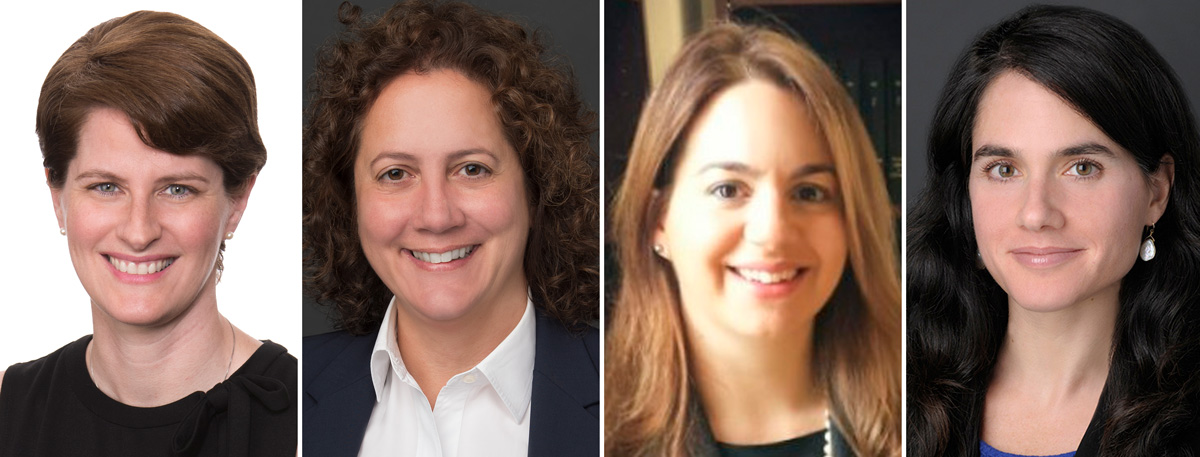
In the pandemic, “the legal landscape keeps changing,” says Katherine Hughes ’08, a pro bono attorney at Cleary Gottlieb Stein & Hamilton LLP, who collaborated with her former fellow Public Interest Research Center (PIRC) volunteers Artemis Anninos ’96 (pro bono counsel, Cahill Gordon & Reindel LLP) and Susan Cordaro ’04 (pro bono attorney and program manager, Simpson Thacher & Bartlett LLP) to provide crucial legal advice to small business owners during the pandemic. All three had worked in pro bono small business clinics prior to the emergence of COVID-19. Once the statewide lockdowns began, they moved their consultations online and scaled up the response immediately.
In addition to working with small businesses during the pandemic, Cahill and Simpson Thacher have also worked closely with Sanctuary for Families to provide support for victims of domestic violence. While most courts remained closed during the COVID-19 outbreak, many survivors have been unable to get the legal help they may need while trapped in isolation with their abusers. The two firms provided volunteers to assist domestic violence victims, offering a staff of volunteers to establish the caller’s needs and, if necessary, assist in drafting petitions for orders of protection. “Out of this terrible situation, there’s been this innovation—we were forced to do so many things in a short amount of time,” explains Anninos.
In recognition of Cahill’s and Simpson Thacher’s pro bono work, both firms were awarded a 2020 Above & Beyond Pro Bono Achievement Award by Sanctuary. Sanctuary also specifically highlighted the outstanding volunteer work by Cahill Associate Jennifer Patt ’07. Cahill’s summer associate class, which included a number of current Fordham Law students, was also recognized by the nonprofit organization Multiplying Good. In its announcement of the honor, the organization highlighted the summer associates’ work, including providing assistance to victims of domestic violence via Sanctuary’s VCAP program and working with Cahill attorneys to counsel small businesses about their options under the CARES Act.
Cordaro credits the strength of the pro bono network for making the difficult transition to today’s “new normal” smoother and less stressful. “A nice thing about this community of pro bono counsel is that we draw on each other’s experience, knowledge, and relationships,” she remarks. —Julia Brodsky
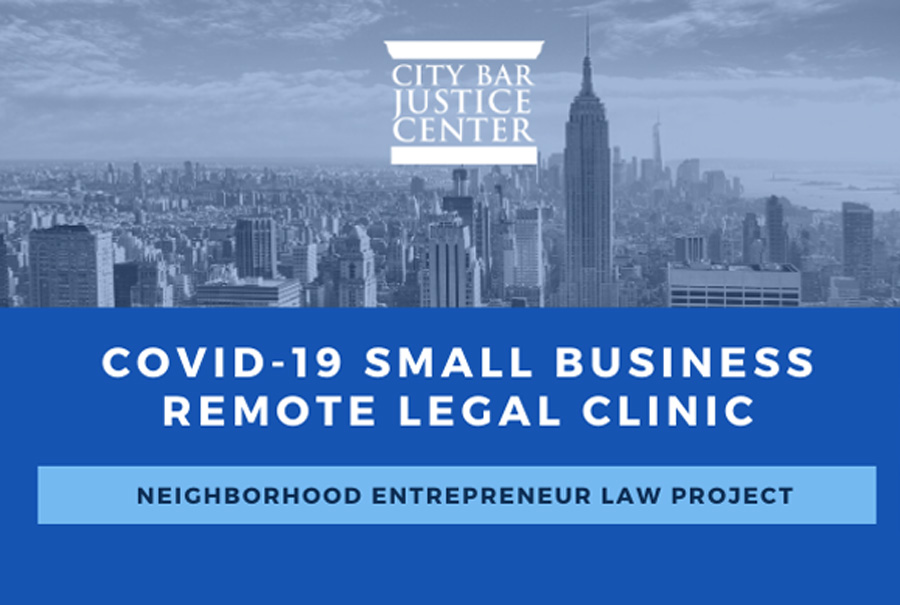
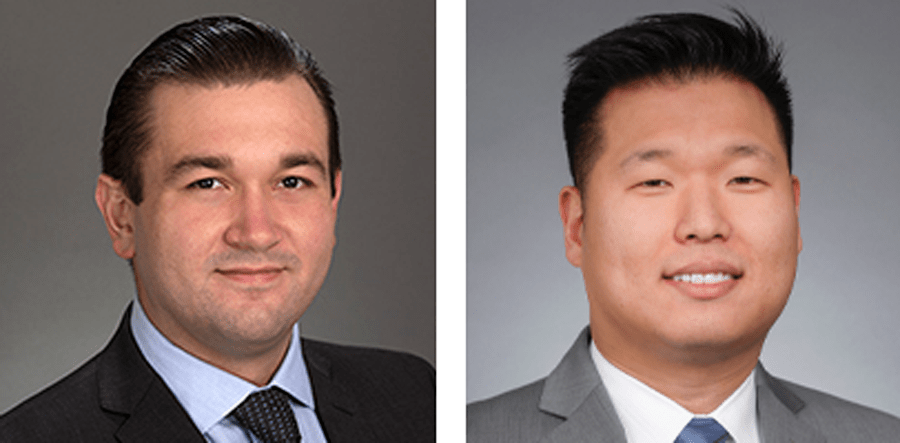
Jared Arcari ’19 (above, left) and Tyler Doh ’13, associates in Goodwin’s New York office, have played an active role in providing pro bono legal services to small businesses through the firm’s partnership with the City Bar Justice Center’s COVID-19 Small Business Remote Clinic.
Lawyers in the clinic work with small business owners to help them understand—and avail themselves—of programs available to them under the federal government’s COVID-19 stimulus package, among other federal, state, and local initiatives. As part of a multidisciplinary team of Goodwin lawyers, Arcari and Doh counseled various clients, such as a New York City wellness studio impacted by the citywide lockdown and other businesses struggling to make ends meet. “There was a real need to have something like this program in the community. Owners were grasping at straws since there wasn’t a resource library out there,” says Doh.
When attention shifted to the Federal Reserve’s Main Street Lending Program in June, small businesses had more questions for Goodwin lawyers about how to tap into those funds since the first round of Payroll Protection Program funding had dried up. “It has been a great opportunity to help small businesses and learn a lot as well, especially about a topic that is outside my general practice area. Part of the ‘excitement’ around the small business clinic program is that every week there is a new rule, regulation, or update from the government,” Arcari says. “It really keeps lawyers on our toes … but also requires diligence and commitment on the part of the lawyers to track those changes, so that we are giving updated information to our pro bono clients.”
This work was done in coordination with Goodwin’s Neighborhood Business Initiative (NBI), the firm’s signature pro bono program that provides business-related legal resources, workshops, clinics, and direct representation to entrepreneurs and small business owners who are members of underserved communities or whose businesses positively impact underserved neighborhoods. Through NBI, Arcari also collaborated with Jake Hays ’17, an associate at Goodwin and member of the firm’s Technology and Life Sciences group, along with other Goodwin specialists, to host a workshop in June with a venture capital accelerator cohort about how to raise capital during difficult circumstances, including the coronavirus outbreak and resulting economic downturn. —E.D.
Our resource tools, particularly the tracker, have already received a positive response as they help
to identify problems and solutions.
Mary Kate Brennan J.D. ’12, LL.M. ’17
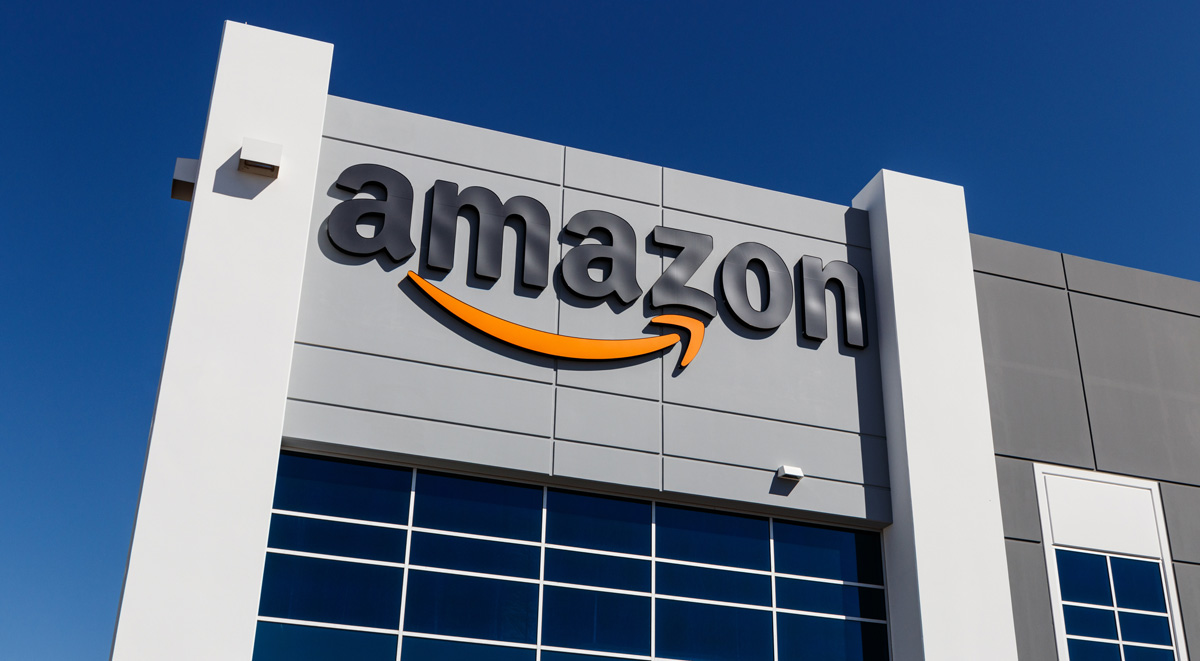
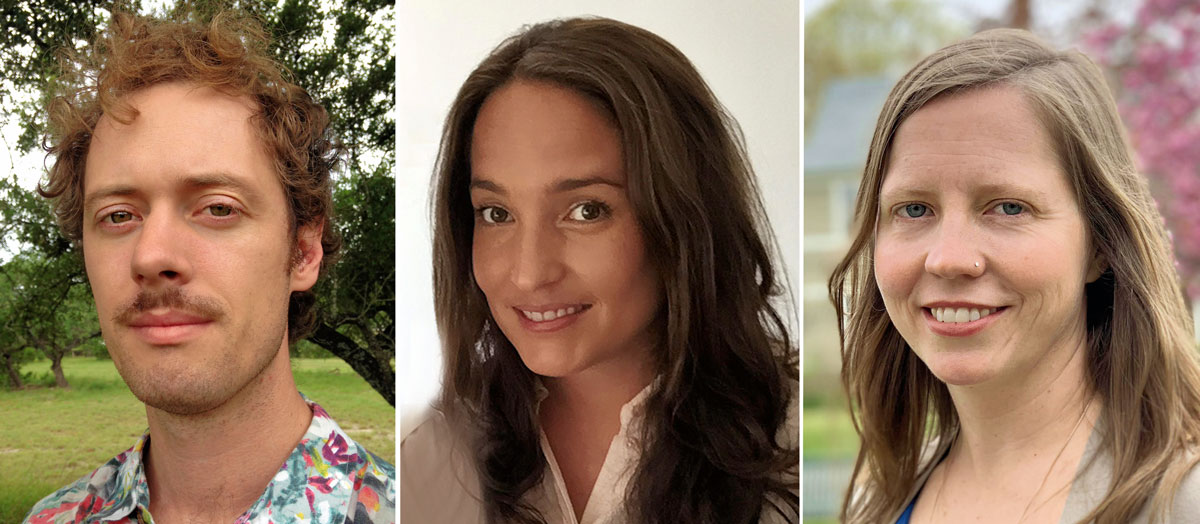
For months before the coronavirus outbreak struck, Frank Rankin Kearl ’18 (above, left) of public interest organization Make the Road New York had been speaking with employees at Amazon’s distribution facility in Staten Island about claims of workplace dangers. “But when COVID-19 happened,” Kearl says, “it amplified all these issues.”
In June, Make the Road, along with two other public interest organizations and a law firm, filed a complaint on behalf of three Amazon employees and their family members in the Eastern District of New York. Kearl, Elizabeth Jordan ’10 (above center), and Juno Turner ’06 (above right)—all former Stein Scholars—were among the attorneys of record.
The complaint—which seeks declaratory and injunctive relief—alleged that Amazon discourages employees from taking leave and does not provide time or equipment for sanitizing work stations, among other allegations. Amazon workers received an early victory when the company announced in July that it was no longer using certain worker productivity measures or disciplining employees for time off task to use the bathroom, sanitize work stations, or socially distance. As a result, plaintiffs withdrew their preliminary injunction motion.
On July 21, the parties participated in a teleconference to discuss Amazon’s plans to file a motion to dismiss. Amazon argues that the workers’ claims should be addressed by the Occupational Health and Safety Administration, and that the complaint fails to state a claim for public nuisance.
The plaintiffs’ claims are based upon a novel public nuisance theory, which has emerged as a basis for other COVID-19-related lawsuits across the country. Of the public nuisance claims, Turner notes, “things you learn in your 1L year can be put to good use in the public interest.” —S.M.
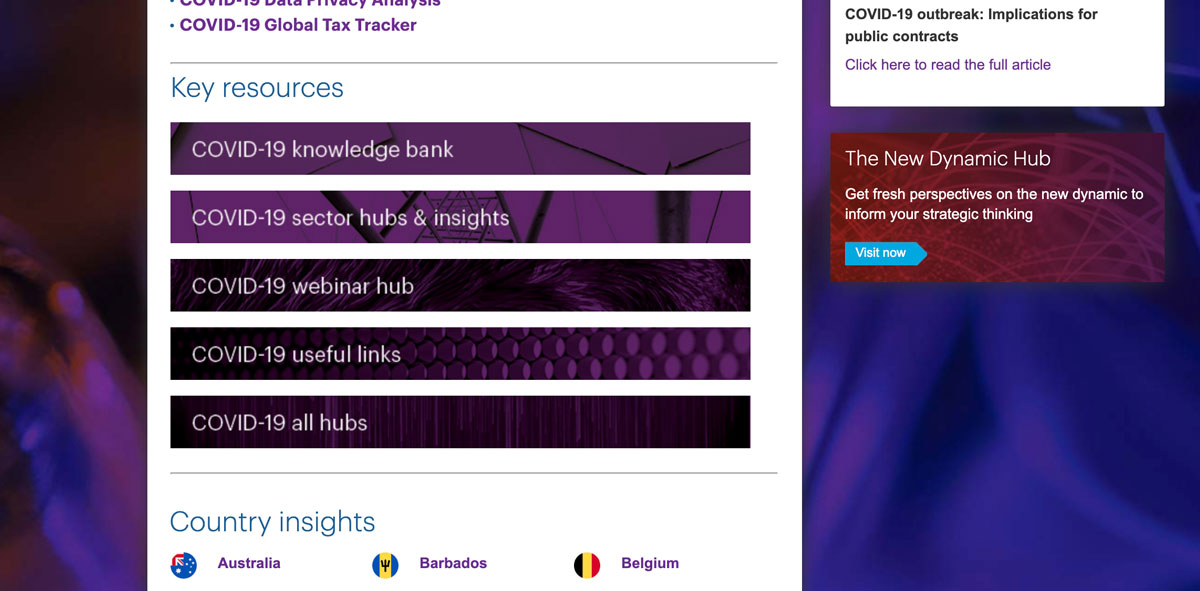
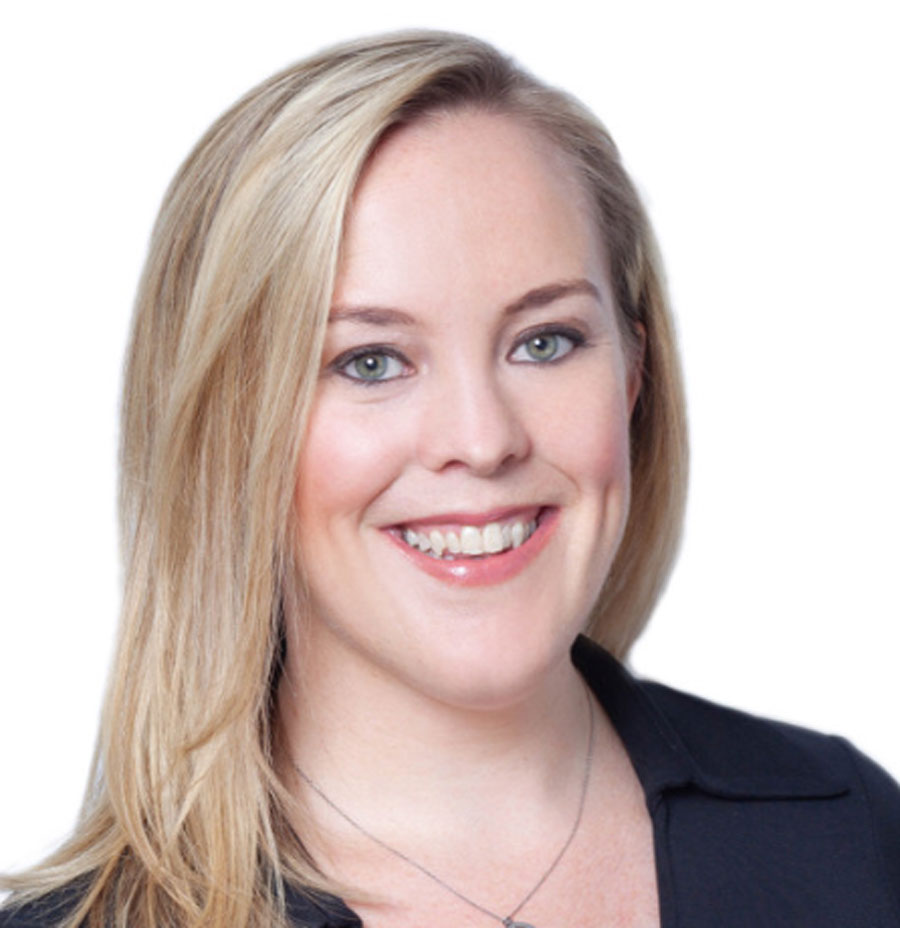
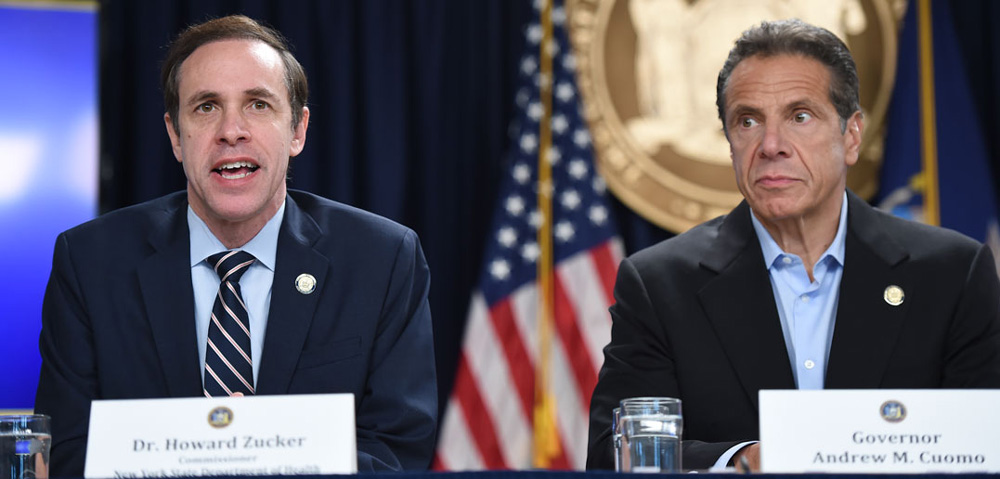
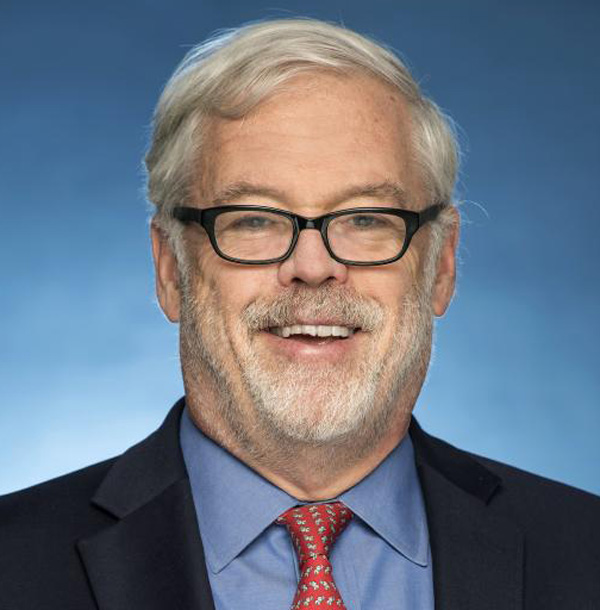
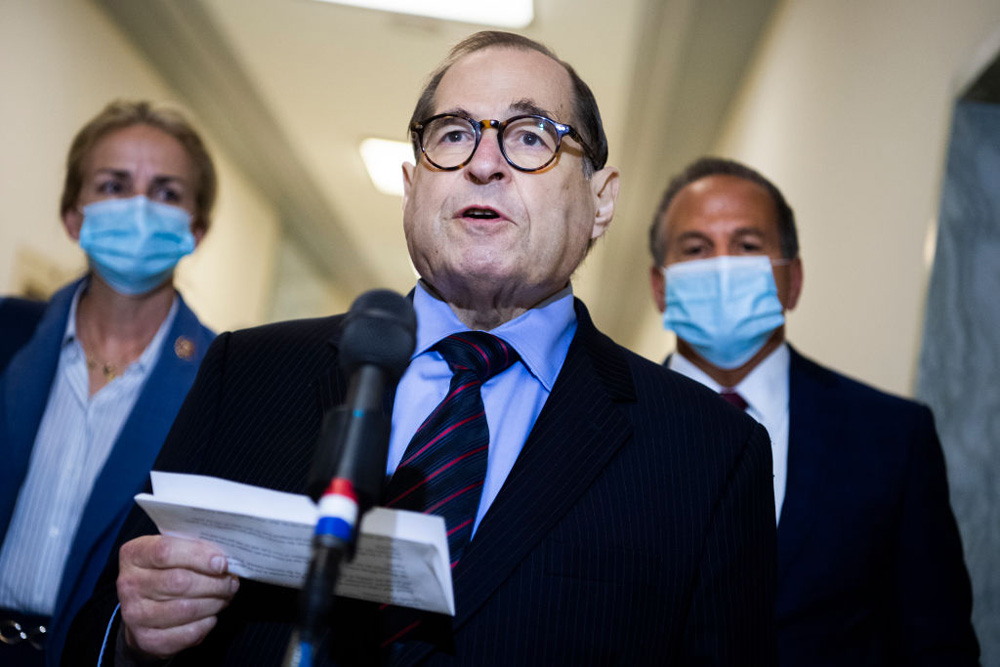
My time at Fordham was instrumental. That commitment shapes everything I’m doing in Washington to help our communities recover from the pandemic.
Thomas Suozzi ’89
